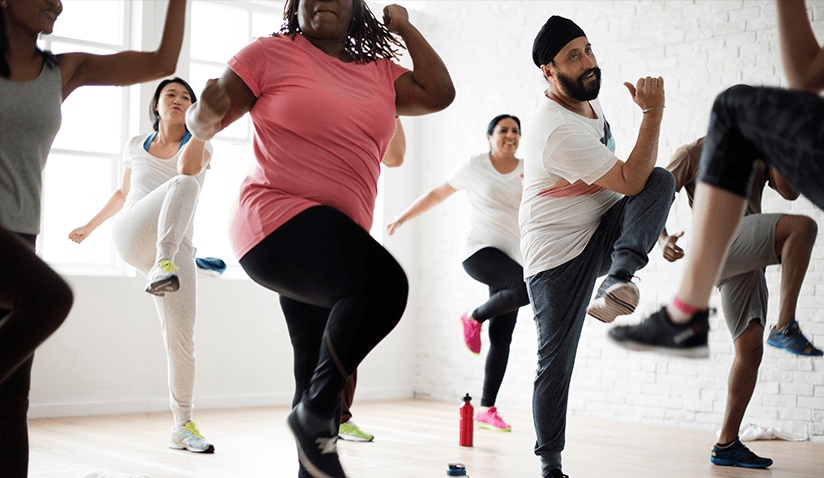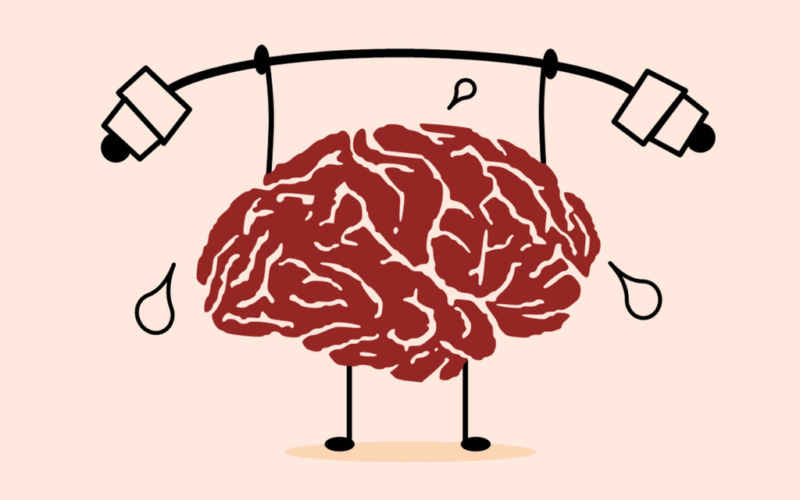I will be a bit personal about this topic because exercise is like my therapy. People do not see how exercise improves mental health. They think it is all about the body and do not realize that exercise works not only on the body but also on the mind. A friend once asked me why I exercise. He pointed out that even after a long day at work or school, I would still hit the gym and practice a few reps.
Honestly, I never really thought much about it, so I was quiet for some time before I figured it out. By then, I realized that exercise grounds me and keeps me stable. In cases where I could be having the worst day, I would exercise and feel instant relief from all the tension I was carrying around. Funny enough, I didn’t fully realize the impact exercise had on my mental health till that moment. But in a more defined outline let’s go over how exercise will improve your mental health and its other advantages..
Key Takeaways
- When you exercise, your brain’s levels of neurotransmitters like serotonin, stress hormones, and endorphins become balanced. You can have better sleep if you exercise frequently. Also, getting enough sleep aids in mood management.
- According to a recent study, walking for an hour or running for at least 15 minutes a day lowers the risk of severe depression by 26%. In addition, exercising regularly can help you avoid relapsing in addition to reducing the symptoms of depression.
- When we do not exercise, our minds begin to go in a negative direction, especially if we used to exercise before.
- Walking, running, yoga, and dancing are some simple exercises you can do to keep the heart pumping and improve mental health.
How Exercise Improves Mental Health

At times, those who routinely exercise do so only for their own benefit. However, your mood, attention span, and alertness can all be improved via exercise. It can even help you have a more optimistic attitude in life.
It is difficult to pinpoint how exercise affects mental health. Inactivity, for example, can be both a cause and a symptom of mental illness. But there are other ways to improve your mental health through exercise, including:
- When you exercise, your brain’s levels of neurotransmitters like serotonin, stress hormones, and endorphins become balanced.
- You can have better sleep if you exercise frequently. Also, getting enough sleep aids in mood management.
- Your sense of control, coping skills, and self-esteem can all be improved via exercise. Those who exercise regularly frequently talk about how amazing it feels to accomplish a goal.
- Exercise can help you block out bad thoughts and give you the chance to try new things.
- You get an opportunity to socialize and receive social support when you exercise with others.
- Your energy levels rise as you exercise.
- You can release your tensions through physical activity.
- You can feel more at ease by exercising because it helps to relax your skeletal muscles.
How Does Exercise Help Depression and Anxiety

According to studies, exercise can treat mild to severe depression just as well as antidepressant medication, but without any negative side effects. According to a recent study, walking for an hour or running for at least 15 minutes a day lowers the risk of severe depression by 26%. In addition, exercising regularly can help you avoid relapsing in addition to reducing the symptoms of depression.
For several reasons, exercise is a highly effective depression fighter. Most significantly, it encourages a variety of mental changes, including brain development, decreased inflammation, and new activity patterns that foster feelings of peace and well-being. It also causes the production of endorphins, potent brain chemicals that lift your mood and make you feel happy. Lastly, exercise can be used as a diversion because it gives you some quiet time to stop the negativity that leads to depression.
Then, based on anxiety, Exercise is a safe and efficient natural anxiety cure. Through the release of endorphins, it reduces anxiety and stress, increases mental and physical vitality, and improves well-being. Any activity that keeps you moving might be helpful, but paying attention, as opposed to drifting off, can have a greater positive impact.
For instance, try to pay attention to the sound of your feet on the ground, your breathing pattern, or the sensation of the wind on your skin. You’ll not only be in better physical shape faster by incorporating this mindfulness component into your workouts—by really paying attention to your body and how it feels—but you might also be able to stop the constant stream of anxieties that are going through your head.
How Does Exercise Improve Mood

Exercise also positively impacts your mood, which is another aspect of mental health. when we exercise, our body releases feel-good chemicals like Serotonin and endorphins, thereby changing our mood and increasing our happiness level.
According to research, engaging in regular physical activity is linked to an improvement in mood and a decrease in negative thoughts.
Therefore, if you’re having a bad day, you might need one workout to change your perspective and overcome minor depression.
Best Exercise for Mental Health

You have probably heard that exercise is good for your mental health many times.
It is real. Along with a host of other mental advantages, regular exercise can help manage depression symptoms, improve mood generally, lessen cognitive problems, and reduce worry and stress.
There are four kinds of exercise namely; cardiovascular, strength training, balance, and flexibility. You do not necessarily need to run to exercise. There are many other ways to get your heart pumping.
#1. Walking
It is a form of cardiovascular exercise. The most popular kind of exercise for improving mental health is walking. It’s a known favorite because you can do it anywhere and it has a modest impact. Walking can encourage good thinking, reduce anxiety symptoms, and reduce stress. Take a stroll outside and take in the scenery for the greatest outcomes. Walking in nature has been shown to lower anxiety.
Studies reveal that even just 15 minutes of walking can reduce your chance of developing depression by 26%. A long stroll is not necessary.
#2. Running
Running is a good option if you want to exercise more vigorously for mental health. It is also a form of cardiovascular exercise. When we run, endorphins flood our brains, elevating our mood. It is referred to as a “runner’s high.” Exercise outside has been shown in studies to be a successful therapy option for antidepressants.
Running regularly can also help you fall asleep faster and sleep better, which is vital for reducing depression and anxiety symptoms.
#3. Strength Training
If you want to gain muscle while improving your mental health, try strength training. It can lessen the likelihood of developing depression or lessen its symptoms when present. Additionally, you experience the joy of accomplishing strength objectives.
It’s not necessary to go to the gym and lift weights to engage in strength training. With the use of resistance bands, free weights, and your body weight, you may quickly develop strength at home.
#4. Yoga
Yoga is a combination of balance and flexibility. In addition to moving your body, Yoga provides you with the opportunity to think and meditate. It’s one of the best workouts you can perform to improve your mental health. Negative thinking and thought cycles can be eliminated by concentrating on your breathing. Your parasympathetic nervous system is activated by controlled breathing, putting you in a relaxed condition. It accomplishes this by bringing your blood pressure and heart rate down.
The sympathetic nervous system, which governs the body’s fight-or-flight response, is paired with the parasympathetic nervous system. Even if there is no threat, anxiety causes your sympathetic nervous system to be activated. Yoga can assist in reestablishing balance by activating your parasympathetic nervous system.
Variety is one of the best things about yoga. You can do any type you like, from relaxing to physically demanding.
#5. Dancing
Another form of exercise that dramatically lowers anxiety is dancing. Additionally, it can boost self-esteem. You can choose the type of dancing you perform, just like with yoga; each has advantages. Try tango or free-flowing movement if you’re not a ballet dancer.
You can get the advantages without going to a dance studio. Dance lessons can be taken online while you relax at your house. If you need social contacts, however, coordinated or organized group dancing could enhance outcomes. Zumba classes provide social benefits that other forms of fitness do not. You can interact with people through them and develop friendships.
How Does Lack of Exercise Affect Mental Health

A lot of people believe that because they look slim, they do not need to exercise. Now, exercise works not only on the body but also on the mind. When we do not exercise, our minds begin to go in a negative direction, especially if we used to exercise before. You will notice a few changes, which we will discuss here.
-Higher risk of Anxiety and Depression
A study states that when we exercise, the body sends feel-good chemicals like anandamide and endocannabinoids directly to our brains. It claims that these substances promote sensations of joy while also blocking pain receptors. We often experience increased anxiety and depression when we are lacking in these vital molecules. This occurs when we don’t exercise.
You don’t need to spend all day running on a treadmill to solve this problem. Tracking your steps is sufficient. Use a standing desk and go for frequent walks to ensure that you get up and move around.
-A High level of Negativity
A lack of activity may be to blame if you are having trouble finding the positive side of things and are constantly thinking the worst. According to psychologist Yvonne Thomas, PhD, exercise helps us decompress and gives us a way to let out unpleasant emotions. “Whether it’s through cardio-related physical activities or more mild, less intense movement like walking or doing housework, a person can work out some emotions by breathing more deeply and by actively re-channeling emotions through one’s body movements,” she explains. “It can set off the feel-good endorphins that can be calming and relaxing.”
Those undesirable emotions persist and worsen when we spend the entire afternoon on the couch or skip a yoga class with a friend, starting a vicious cycle.
-Problem-Solving Becomes a Challenge for Our Minds
Consider the last time you encountered a challenge at work that you had to overcome. Did you have trouble coming up with ideas, or were you able to think, creatively, and back to previous circumstances for direction? Lack of exercise can be to blame if you find yourself more on the struggle bus than the achievement bus. According to Dr. Nadelman, exercise enhances all aspects of our cognitive abilities, including memory and processing speed, academic achievement, problem-solving, and attention span. It also enables us to make decisions and multitask while maintaining our flexibility.
“Physical activity improves brain function via neuroplasticity. Without even low-impact exercise, our brain can feel drained and unmotivated, making it difficult to complete tasks and meet deadlines. When your day seems to be dragging on you in the future, think about taking a brief aerobic workout for 15 minutes. You’ll feel better in the long run and just from the burst.
-Low Confidence and Self-Esteem
You know that feeling of elation after a particularly strenuous, sweaty workout? You are eager for your recovery snack or meal since you feel powerful, unbeatable, and strong. Thomas asserts that fitness promotes confidence and provides a sense of accomplishment regardless of the sort of movement. On the other hand, not exercising has the opposite effect, lowering one’s image and sense of self. “This is because the person who’s too sedentary can feel and think of themselves [negatively] in many ways,” explains Thomas. “The person may feel less vibrant, fun, productive, energetic, and so on.”
These thoughts are difficult to overcome once they start. It turns into a vicious loop where we degrade ourselves, lack the energy to exercise, and then feel worse as a result.
-Stress becomes a Challenge for our Brains
Every stressful scenario triggers one of two reactions in us: flight or fight. If we fly, we take off because we don’t want to face the trouble that lies ahead. If we are warriors, we persevere, occasionally turning hostile or defensive. According to Dr. Nadelman, this biological adaptation is less useful today than it was at the time of the cavemen. Most of the time, people can balance these two extremes and deal with anxiety when it arises.
However, when we don’t follow a consistent physical activity schedule, our brain releases the stress hormone cortisol, making it more difficult to successfully control our emotions.
Benefits of Exercise on the Brain

Exercise does a lot of good for our body and the different organs in it, Like aiding digestion, increasing agility, and regulating our breath, But most of all, exercise has a lot of benefits on the Brain.
1. Exercise Acts as a Stress Reliever:
You would not be surprised to learn that regular exercise is recommended as a highly effective stress reliever.
You may have direct knowledge of this. For instance, you might have decided to go to the gym after a particularly stressful day at work and felt a little relaxation when you got home.
Through lowering levels of stress-related chemicals like cortisol and adrenaline, exercise is known to alleviate stress, which improves mental health.
Regular exercise is also found to provide resistance to numerous stressors in animal experiments.
In other words, exercise may help you avoid stress altogether in addition to helping you cope with it.
As a result, those who exercise may be able to handle everyday stressors better, which could enhance their overall quality of life.
2. It Boosts Self-Esteem and Self-Confidence
Improved self-esteem and self-confidence are two additional factors that show how exercise improves mental health exercise,
Numerous studies have shown that regular exercise can help people feel better about themselves and their bodies.
Therefore, exercising regularly can be a terrific method to increase self-confidence and self-esteem.
3. It improves thinking and memory
Exercise has a variety of benefits for mental health and may also improve your memory and thinking.
Regular exercise may enhance brain clarity and enhance working memory and attention span, according to research.
Exercise has also been demonstrated to slow cognitive deterioration in persons over 50.
While regular exercise can have several positive effects on one’s overall mental health, it can also help with the symptoms of some particular mental health issues, which we shall examine in more detail below.
4. It encourages improved sleep patterns
How well you sleep at night is one aspect that you may disregard in sustaining mental wellness. Exercise improves mental health by helping your muscles relax when it is time to rest.
Although many things might affect how well you sleep, your physical activity is important.
Regardless of the type of exercise, a 2017 analysis of 34 studies found that it can increase the quality and duration of sleep.
Exercise may also shorten the time it takes you to fall asleep or the sleep onset latency.
Therefore, including regular exercise (regardless of the kind) may be very beneficial if you have trouble getting enough good sleep.
5. Exercise elevates mood
Exercise also has a beneficial effect on your mood, which is another aspect of mental wellness.
According to research, engaging in regular physical activity has a link to an improvement in mood and a decrease in negative thoughts.
Therefore, if you’re having a bad day, you might need one workout to change your perspective and overcome minor depression.
Exercise and Mental Health PDF
Bear in mind that this is an article, and there is only as much information as you can get here. For further information, here is a link to a pdf to read more on how exercise improves mental health.
Also, I will drop a short video that gives a general overview of the impact exercise has on mental health; it will explain and give more insight on this topic:
Conclusion
Congratulations!!! If you’ve reached the end of this article, it means that I have been able to convince you about the benefits of exercise on your mental health, and you have made plans to check out available gyms in your location. Also, I expect you to have brought out your running shoes and kept them ready for this new phase of your life, Brace yourself, it is going to be an exciting journey.
Honestly, Incorporating exercise into your routine is a game changer for both your mental and physical well-being, your mind and body won’t thank you enough. After all, it is said that ‘Health is a beauty and Fitness is its key’.
Related Articles
- 11+ Activities That Build Self-Esteem, Updated!!!
- How to Be Independent- 15 Practical Ways
- Dating a Guy with Performance Anxiety: All You Need to Know
- Are You Depressed or Lazy? A Guide to Mental Well-Being






